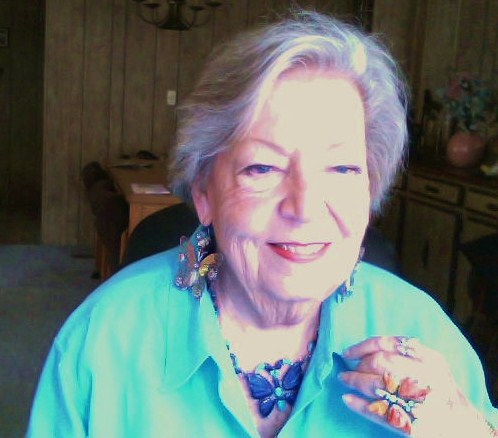F.D.A. Bars Use of Avastin to Treat Breast Cancer
From today's New York Times:
The Food and Drug Administration on Thursday moved to revoke the approval of the widely used drug Avastin as a treatment for breast cancer, saying that new studies did not confirm that the medicine was helping patients.
The decision is causing anguish for some women who worry they may no longer have access to a drug they believe is helping to keep them alive. But some patient advocacy groups welcomed the decision, saying Avastin had never been shown to prolong lives and that women with breast cancer need more than false hope.
“I understand that today’s recommendation from the F.D.A. is disappointing for patients with breast cancer,” Dr. Richard Pazdur, head of the agency’s cancer drug division, said in a news conference. “Please note that these findings are also disappointing for the F.D.A. as well.”
The F.D.A. decision was issued on the same day that the European Medicines Agency, operating under different rules but with the same data, left Avastin available to breast cancer patients, but in a narrower way.
In the United States, Avastin is likely to remain approved for use against breast cancer at least for a few more months while the drug’s manufacturer, Genentech, appeals the decision. The company has 30 days to submit its arguments, after which the F.D.A. will decide whether to grant the company a hearing.
Other approved uses of Avastin — to treat colorectal, lung, kidney and brain cancers — will not be affected. So even if the revocation for use against breast cancer is finalized, doctors could still use the drug “off label” to treat it.
But insurers will be less likely to pay for off-label use of a drug that is very expensive. If approval is withdrawn, Genentech would remove breast cancer treatment from its program capping yearly expenditures on Avastin at about $57,000 for those with incomes under $100,000.
Without the price cap, Avastin would cost about $88,000 a year, out of reach of many patients. Genentech says the drug is used each year by about half of the 29,000 Americans with metastatic breast cancer.
The F.D.A.’s decision also drew political criticism, with some Republicans contending that withdrawing this treatment for breast cancer was akin to rationing under the new health care law.
“It is troubling that women in Germany and France will soon have access to a life-saving drug, while women in the U.S. will not,” Representative Kay Granger, a Texas Republican, said in a separate statement.
Dr. Janet Woodcock, director of the Center for Drug Evaluation and Research at the F.D.A., said costs were not a factor. She said that Medicare and Medicaid would not consider changing reimbursement policies until a final decision was rendered.
Elizabeth Dove of Colorado Springs is taking Avastin to treat her advanced breast cancer, and said her doctor had told her she only had weeks to live before she started using the drug three years ago.
“I’m really afraid it’s not going to be available to anyone,” she said. “It has saved my life.”
Dr. Edith Perez, a breast cancer specialist at the Mayo Clinic, said she was both shocked and saddened by the decision, saying the option should remain open to patients.
“It’s like any other drug I have in oncology,” said Dr. Perez, who consults for Genentech but whose fees go to her hospital, not her. “I never know if the patient in front of me will benefit.”
But some breast cancer patient advocacy groups praised the decision.
“We applaud the F.D.A. for responding to the scientific evidence in the face of significant political and public pressure,” the National Breast Cancer Coalition said in a statement.
Musa Mayer, an advocate in New York who has had breast cancer, said the F.D.A.’s decision “sends a clear message that women with metastatic breast cancer need treaments that prolong their lives, show clear evidence of improvements in quality of life and clear clinical benefit. And Avastin has not demonstrated any of that.”
Avastin, also known as bevacizumab, is the world’s best-selling cancer drug, with sales last year of about $6 billion. It is also the best-selling drug for Roche, Genentech’s parent company.
Analysts have said revocation could cost Roche, the Swiss pharmaceutical company, between $500 million and $1 billion in lost sales. Roche, which paid $46.8 billion in 2009 to acquire the 44 percent of Genentech it did not already own, is in the process of cutting its workforce, partly because of the diminishing sales prospects for Avastin.
Genentech said it was disappointed in the decision and that Avastin should remain a choice for women.
Avastin, also was given “accelerated approval” as a treatment for breast cancer in 2008 under a program that allows for speedy approval of drugs for serious diseases. In the initial clinical trial, the use of Avastin and the chemotherapy drug paclitaxel delayed by 5.5 months the median time before the disease worsened compared to the use of paclitaxel alone.
But accelerated approval is subject to further studies to confirm a drug’s effectiveness. And in two new trials, in which it was combined with different chemotherapy agents, Avastin did not perform as well. It delayed tumor worsening by only a month to about three months. It did not prolong lives at all and all and subjected many women to severe side effects.
An advisory committee to the F.D.A. voted 12 to 1 in July that the breast cancer approval should be withdrawn.
But since then, there has been lobbying by some patients and doctors to keep the approval. Christi Turnage, a nurse in Madison, Miss, who is using the drug, submitted a petition with 9,500 signatures and her son posted an emotional video on YouTube.
It is rare for the F.D.A. to take a drug off the market that it had earlier granted accelerated approval. Agency officials pointed out that European regulators had given full approval to Avastin, not conditional approval as the F.D.A. had. But European regulators decided on Thursday to limit approval to use Avastin only with paclitaxel, a chemotherapy drug.
Dr. Eric Winer, a breast cancer specialist at the Dana-Farber Cancer Institute in Boston, said that doctors had been decreasing their use of Avastin “because of concerns about toxicity and because we recognize it does not extend a women’s life. On the other hand, it does increase the time cancer is under control. And for some women, not all, that is something that can be helpful and can lead to an improvement in quality of life.”
Many experts said Avastin appears to help some patients live longer. But right now, it is impossible to predict in advance which patients. If Genentech can figure out how to predict this – such as by a genetic test – it would clear the way for the drug to remain on the market for a subset of patients.



Hi Pat Elliott,
Thanks for the information. Am sure it will help any women going through this. https://www.empowher.com/condition/breast-cancer
Best,
Daisy
January 29, 2012 - 4:51pmThis Comment